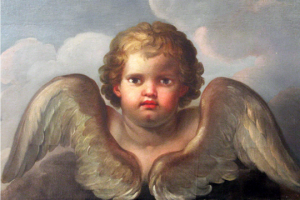Today, the alarm starts ringing. It is time again to awaken, not for a particular day but for a life. The alarm clamors, sounding not just in our ears but in our souls. Today, we must begin to return not just to the Creator but to our best selves, our purpose as unique creations.
The Hebrew month of Elul begins today. With it come the 30 days of preparation for the High Holy Days and then the 10 days of repentance from Rosh HaShanah (the Jewish New Year) and Yom Kippur (the Day of Atonement). For 40 days, Jews are supposed to engage in the practice of teshuva, of return, often cast as repenting. The structure of the 30 days of preparation, though, is a strong signal that repentance is not enough. Teshuvais meant to be a return to our Divine calling.
It was not an error when I wrote above that return is not just to God. The Jewish tradition calls on us to return to God, yes, but only after setting things right with our fellow human beings. Our mistakes, misses and sins are categorized as either bayn adam l’chahvehroh or bayn adam l’Mahkohm, between a human and its fellow or between a human and The Place (meaning God). Traditionally, we must repair our misdeeds against other people before we can even think of apologizing to God.
This path of working on our relationships with people before attending to our relationship with God holds greater significance to me this year than usual. Usually, I am moved by the theological claim that I need to do the work of returning relationships with other people back on track because other people represent individual instances of God’s image in the world. Usually, I am inspired to work on my relationships as a way of preparing to work on my relationship with God. This year, though, I realize that doing the work with people is also about seeing God in me.
Our relationships bayn adam l’chahvehrohare like mirrors in which we get to see ourselves as other people see us. If we focus only returning to how we think God wants to see us, we might be too easy or too hard on ourselves, we might also operate in the echo chamber of our self-perception or religious ideology.
If we want to know how we are really doing in life, we need to put ourselves out there to ask how am I doing? what am I doing wrong? or what can I do better? If we want to know if we are on track in fulfilling our purpose, we need people who love or care about us to remind us of our successes and our potential. In short, we need to see ourselves in the reflection of the eyes and hearts of those closest to us (our “fellows”). Their eyes see our faults, their hearts see value. They are the mirror that can best help us return.
Starting today, I will be working on repairing relationships with people. I will need to get vulnerable to hear not only about my wrongdoings but also about my wrong-being. While I try to repair the wrongdoing, I hope also to see how I can be better, be who I am meant to be. If I do, I will be that much closer to returning to God. I wish each and everyone success in their returns, starting today and for many, many days to come.
About Rabbi Jeremy Winaker
Rabbi Jeremy Winaker is the executive director of the Greater Philadelphia Hillel Network, responsible for West Chester University, Haverford, Bryn Mawr, and other area colleges. He is the former head of school at the Albert Einstein Academy in Wilmington and was the senior Jewish educator at the Kristol Hillel Center at the University of Delaware for four years. Rabbi Winaker lives in Delaware with his wife and three children.


Comments